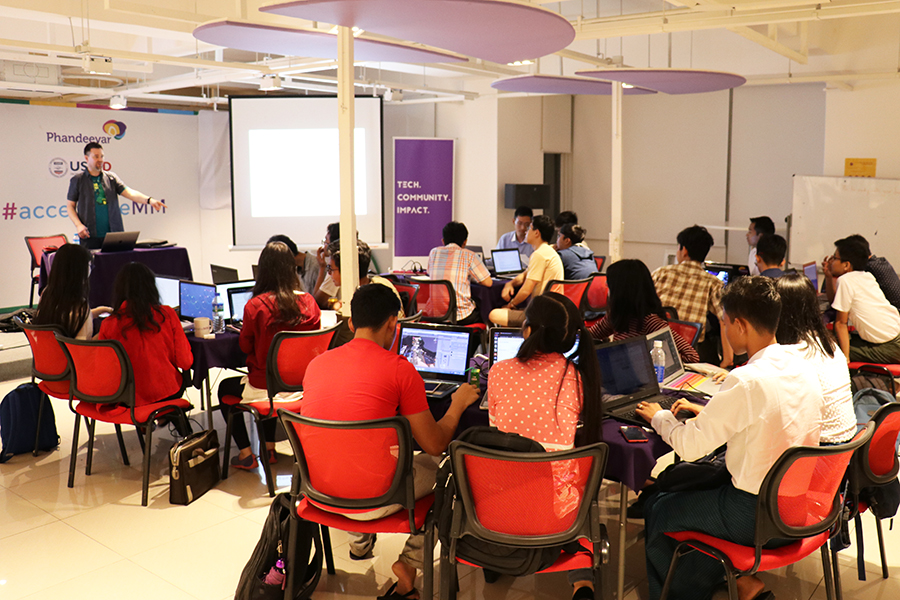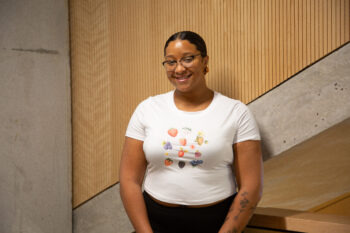Professor Jonathan Kelly (UTIAS) recently returned from a week in Yangon, Myanmar, where he partnered with a startup accelerator to teach robotics to 25 local university students.
The teaching opportunity was part of an initiative by Phandeeyar, an organization that aims to expand the pool of tech talent in Myanmar in order to accelerate the country’s social and economic development.
“I had previously traveled to Myanmar on vacation and a chance meeting led me to learn about this organization,” says Kelly. “I was really interested in what they were doing in robotics and wanted to see if there was something that I could do to contribute.”
Myanmar’s relationship to technology has changed dramatically since the country underwent political reform in 2011. Since emerging from 50 years of military rule and isolation, about 90 per cent of the country’s 54 million people now have access to a mobile phone and internet.
Rapid growth means a young generation of aspiring engineers, computer scientists and entrepreneurs have been empowered to become part of the country’s technology sector, which includes fields such as robotics.
“Myanmar has young people who are eager to learn, but they still can’t count on an education system to feed that hunger,” says João Dutra (Kyaw Aung), accelerator director at Phandeeyar. “Experienced, open-minded professors can have a huge impact with a minimal — but valuable — commitment of time and resources, to enable students to self-learn.”

In March 2019, Kelly visited Yangon and taught a week-long course that included an introduction to robotics and a few days dedicated to artificial intelligence (AI) and how to program software for self-driving vehicles.
“These students came in to listen to me talk for four hours at a time, even after they had finished a whole day of classes,” says Kelly. “I was blown away by their technical knowledge and their dedication to come and soak up as much information as possible.”
In speaking with students, Kelly says many are excited to learn how they can develop relevant technologies to benefit their country, from sanitation solutions to mobile apps for emergency and disaster response. “There’s a lot of thinking ahead and anticipating the needs and changes in the country as it prospers,” he says.
As an educator, Kelly’s believes strongly in capitalizing on any opportunities to share his knowledge and expertise. In late January, he and Professor Steven Waslander (UTIAS) partnered with Coursera to offer online courses specializing in self-driving cars.
“Just looking at my education and career path and the opportunities that have been available to me, I feel very privileged,” says Kelly, who hopes to return to Myanmar again next year to offer a longer series of lectures. “Many parts of the world would benefit from this type of outreach. Knowledge is transformative and that’s really compelling — and one of the reasons to be an academic in the first place.”



